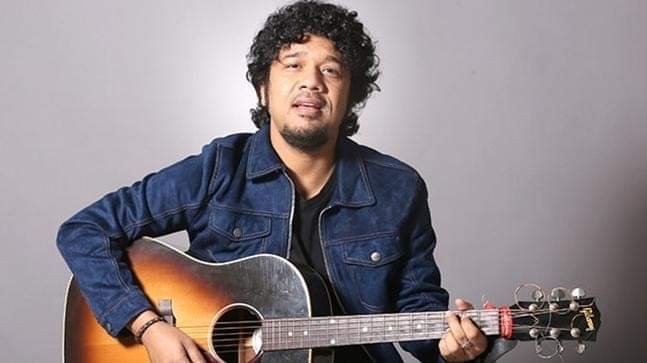Featured
Assamese film ‘Mur Xekh Gaan’ to release on October 14


Sasanka Talukdar report
Mur Xekh Gaan, an Assamese feature film directed by Mumbai-based filmmaker Prabal Baruah, is gearing up for a release in theatres in Assam on October 14.
Mur Xekh Gaan is a story about a man’s longing for the birthplace he left behind twenty-five years ago. Does his longing take him to his hometown? Or does his story take a completely different turn? How does his son, who grew up in Mumbai, handle this situation? Does he get to know the reason why his father never went back to Assam?


The film goes on to reveal all these mysteries and more. There is intense love between a father and his son. And there are events of trust, mistrust, social discord and its evil after-effects, and reconciliation.
The audience will get to see various shades of people’s characters. The film ends with a prayer for forgiveness and harmonious coexistence for all.
The story is written by Prabal Baruah, who has also written the screenplay.
The producer of the film is Bijoy Dowerah, who is basically an advertising film producer. Bijoy has written the dialogues and lyrics.
Ajay Singha has composed the title song and is doing the background score as well. Sound design and mixing has been done by Debajit Changmai and Amrit Pritam.
All these people pouring their hearts into the project are Mumbai-based Assamese people. The story may not be a story of any one of them but longing for the homeland is as intense in each one of them.
There are others from Mumbai in the team. Ace cinematographer Arun Varma has handled the camera and captured the beauty of Assam like never before.
Celebrated director and editor Sankalp Meshram has edited the film. DI has been done by another experienced hand, Malay Ray. All three of them studied filmmaking at the prestigious FTII, Pune.
With such an experienced team working tirelessly for the film, technical brilliance is guaranteed.
It will not be wrong to say it is a star-studded project. You have Arun Nath and Mridula Baruah in lead roles. Kamal Lochan is playing an extremely lovable character. Viewers will love Bibhuti Bhushan Hazarika and Pratibha Choudhury too.
But as main actors, Arghadeep Baruah and Srijani Bhaswa Mahanta have stolen the show. Their chemistry takes the film to another level.
Zubeen Garg has sung the title song. One solo instrumental version of the title track has been played on Sarod by Ayaan Ali Bangash, grandson of the first Assamese movie star Phunu Baruah of Joymoti fame.
There are two Jyoti Sangeets recreated for the film, which are sung by two other star singers Deeplina Deka and Ritrisha Sarmah.
For more stories follow our page Times of Northeast on Facebook, Twitter, Instagram, YouTube, LinkedIn, Koo
Visit our website https://timesofnortheast.com
Times of Northeast is an independent digital news platform which seeks to grab the attention of rational-minded people from Northeast India.


Mur Xekh Gaan Mur Xekh Gaan Mur Xekh Gaan
NORTHEAST
Woman cuts off man’s genitals for refusing to marry her; Hospitalized
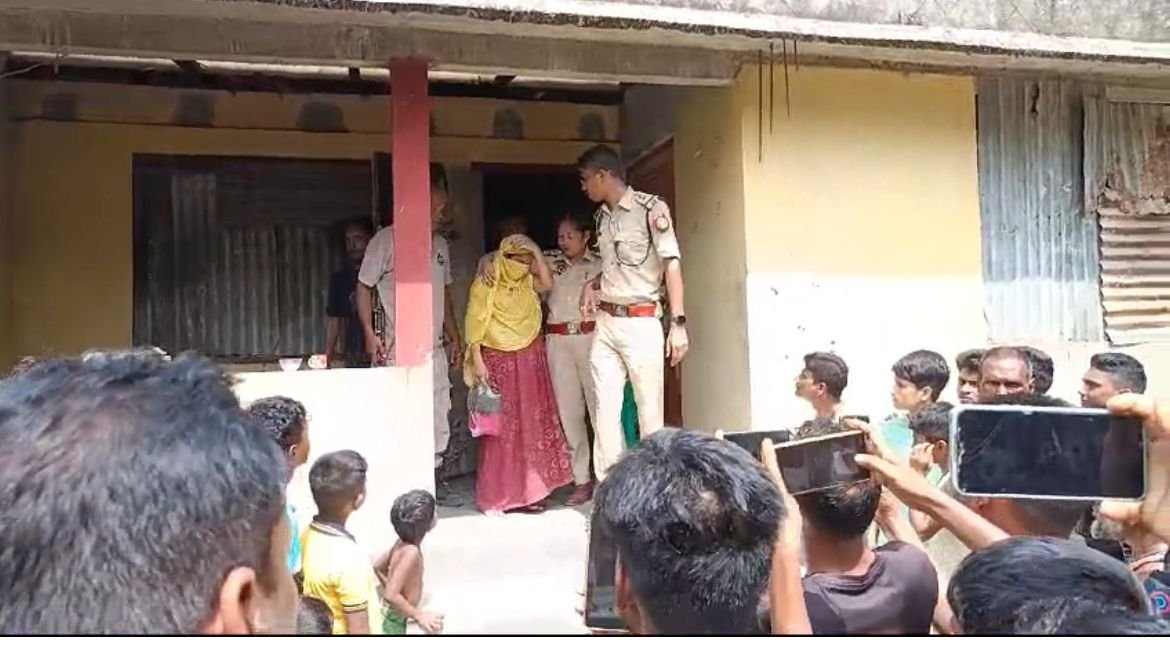

In a shocking incident, A woman allegedly chopped off the genitals of his brother-in-law with whom she allegedly had an illicit relationship in Lower Assam’s Bajali district.
As per reports, the incident took place on September 23 when the woman attacked her brother-in-law after the latter refused her marriage proposal.
The injured man was rushed to the hospital and is currently undergoing treatment in Guwahati.
The victim, identified as 30-year-old Saiful Islam.
According to locals, Islam was involved in a secret affair with his sister-in law.
The two were in a love affair for the last seven years, reportedly taking advantage of times when her husband was away.
In a violent turn of events, she allegedly attacked him and severed his genitals. Police quickly intervened, arresting the woman and initiating an investigation into the incident. They also recovered the weapon used in the attack from the scene.
Featured
Assam’s Mobile Theatre journey since 1960s
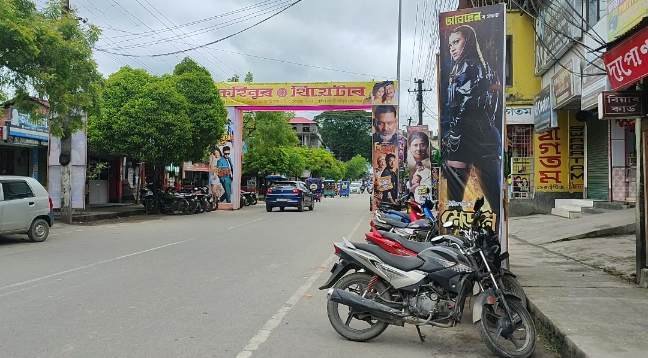

The mobile theatre of Assam, also known as Bhramyaman Theatre, is a unique and vibrant form of theatre that originated in the state of Assam, India where Achyut Lakhar gave birth to Mobile theatre in Pathsala town in the 1960s. Every year the theatre groups travel from place to place with their cast, crew, musicians, dancers and everything required to set the stage, to perform in villages, towns, and cities across Assam.


During the theatre season Pathsala town turned festivity where thousands of people gathered in one place to see plays of ‘Awahan Theatre’, ‘Kohinoor Theatre’, ‘Rajmukut Theatre’, ‘Rajlakhsmi Theatre’. It’s like a festival for the people. The plays often focus on social issues, family drama, mythology, and folklore, as well as contemporary topics like politics and corruption which the audience loves it.
The Theatre group continues to attract audiences on live stage without the use of special effects like green or blue screens, or 3D or 5D technology. During the show many actors injured by accident on live stage.
Earlier, plays like ‘Titanic’ attracted audience without a single drop of water on stage, and ‘Jurassic Park’, ‘Mary Kom’, ‘Mahabharat’ and ‘Ramayana’ also attracted audience.
The groups give employment scope to more than 5000 people. There are more than 30 mobile theatres in Assam, where more than 100 to 150 people work in every group.
Tapan Lahkar, producer of Kohinoor Theatre, reflected on the theatre’s legacy, saying, “Kohinoor Theatre has proudly completed 49 years. Every artist in our group puts in immense effort. In the past, we managed to make our play ‘Titanic’ a success without a single drop of water or any special effects—it was a significant challenge for my father. Similarly, our productions of ‘Jurassic Park,’ ‘Mahabharat,’ and ‘Ramayan’ captivated audiences long before they were ever seen on television.”
Prastuti Parashar, producer of Awahan Theatre, emphasized the cultural importance of mobile theatre, stating, “Mobile theatre has played a crucial role in promoting Assamese culture, language, and identity while providing both entertainment and social commentary to audiences across the state. Awahan Theatre is like family to me, and we are committed to giving our best to entertain our audience. We tackle stories about family and political issues, always with a focus on Assamese culture. We also need the continued support of the people.”
Dhruba Talukdar, producer of Rajlakshmi Theatre, shared his passion for the art, saying, “I hail from Pathsala town, the birthplace of mobile theatre, founded by Achyut Lahkar. Inspired by the plays I watched as a child, I always dreamed of opening my own theatre. I aim to spread positive messages through our productions, addressing issues like global warming, social concerns, politics, and corruption. I take risks to fulfill my dreams, and I don’t believe that OTT platforms can ever replace the unique experience of mobile theatre.”
Manas Kalita, producer of Rajmukut Theatre, highlighted the challenges faced by performers, noting, “Performing on a live stage is not easy. Many actors have been injured during shows, yet they continue to perform with dedication. Every actor and staff member works incredibly hard in mobile theatre.”
Finally, Giridhor Choudhury, a senior citizen from Bajali, expressed his deep connection to the tradition, saying, “Assam’s mobile theatre groups are an integral part of our culture and should live on forever. It’s an emotion for the Assamese people. Since 1963, mobile theatre has provided employment opportunities to many in Assam. Today, there are more than 30 mobile theatres in the state, each employing 100 to 150 people. In total, 4,000 to 5,000 individuals are engaged in this vibrant tradition.”
Assam
Ranjeet Kumar Dass distributs forms of MMNMA scheme at Bhattadev University and NH collage
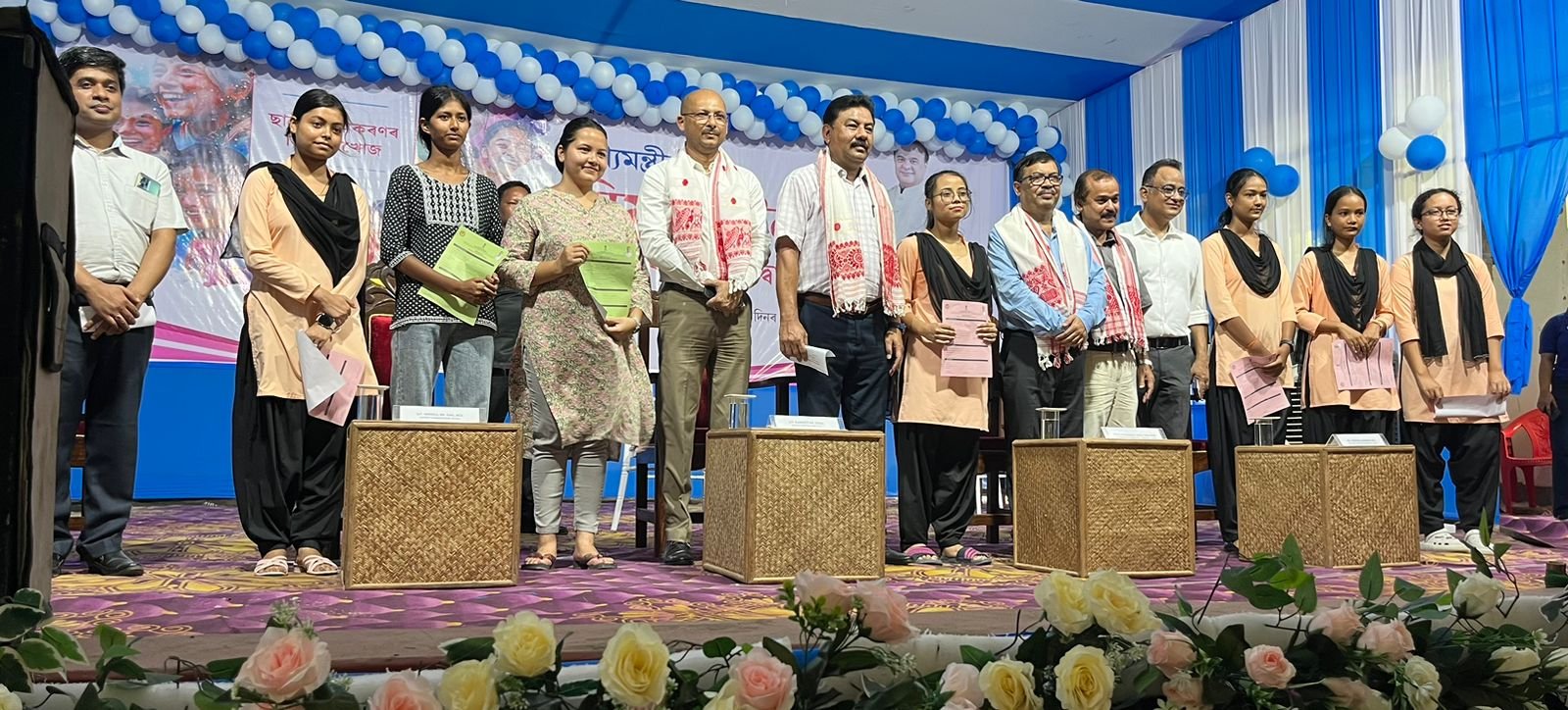

After Assam Chief Minister Himanta Biswa Sarma launched ‘Mukhya Mantri Nijut Moina’ scheme in Assam to prevent child marriage, Assam’s cabinet Minister Ranjeet Kumar Dass distributed forms of the Mukhya Mantri Nijut Moina Asoni scheme at Bhattadev University in Pathsala and NH college in Patacharkuchi.
The scheme to provide monetary benefits to girl students every month in order to put an end to child marriages. This scheme will be awarded to around 10 lakh girls.This scheme is a monthly financial assistance scheme to fight against child marriage. Girls who are studying in HS, graduation and post-graduation level will get this government’s financial support.
During the programme Ranjeet Kumar Dass said, “Heartfelt thanks Assam CM for the CM’s Nijut Moina Scheme, a game-changer for Assam’s meritorious students.”
“There are many families in my constituency that can pay their daughter only Rs. 1,000 to Rs. 1,500 a month for the expenses of studying in the university. But now at least such economically backward meritorious students do not have to leave their studies.
“Today we distributed forms in Bhattadev University in Pathsala and NH college in Patacharkuchi in presence of Bajali district administration, students and staffs.
Meanwhile, the students of the university expressed happiness after the scheme launched by the Assam government.
-

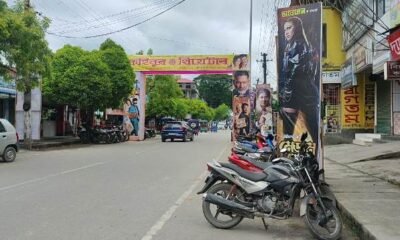

 Featured2 months ago
Featured2 months agoAssam’s Mobile Theatre journey since 1960s
-



 NORTHEAST7 months ago
NORTHEAST7 months ago2 girls drown while taking bath in Pahumara river in Bajali
-



 Assam2 months ago
Assam2 months agoRanjeet Kumar Dass distributs forms of MMNMA scheme at Bhattadev University and NH collage
-



 Featured7 months ago
Featured7 months agoPolice nab 2 drug peddlers at Pathsala
-



 Featured7 months ago
Featured7 months agoDumping of waste on water body leads death of fishes in Pathsala; baffles nature lovers
-



 Featured5 months ago
Featured5 months agoSpecially abled man appeals for govt aid
-

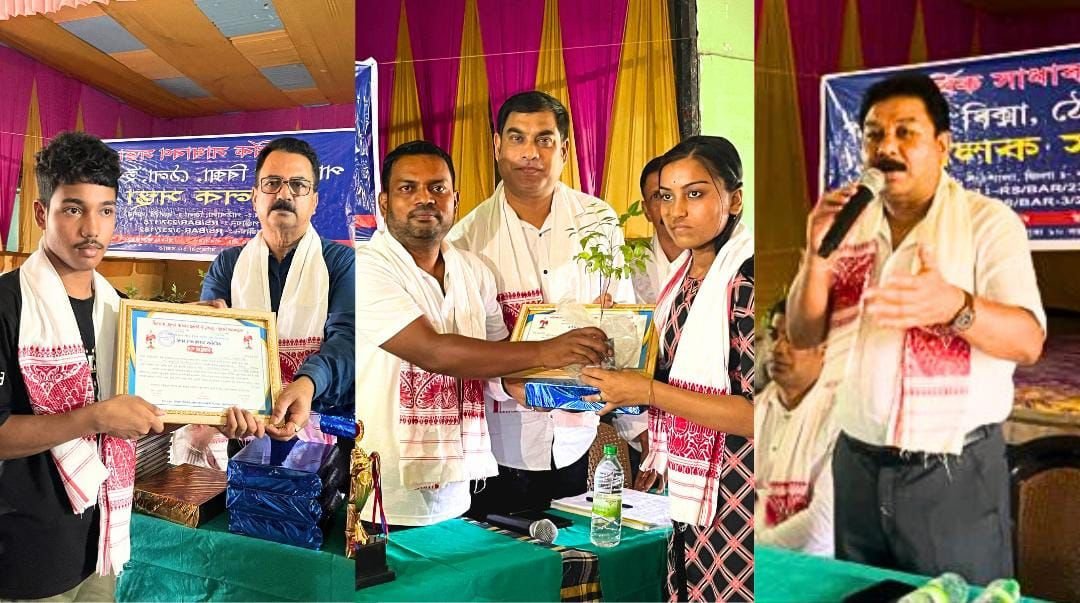

 Featured4 months ago
Featured4 months ago“Whatever you do, do it best with your heart and soul.” Ranjeet Kumar Dass
-

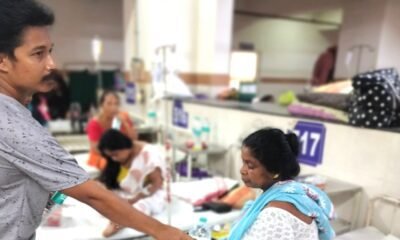

 NORTHEAST3 weeks ago
NORTHEAST3 weeks agoSeveral pilgrims from Assam hospitalised in Gujarat due to suspected food poisoning, 1 dead





